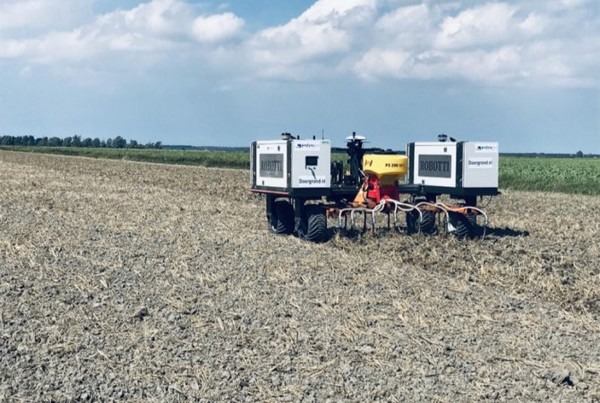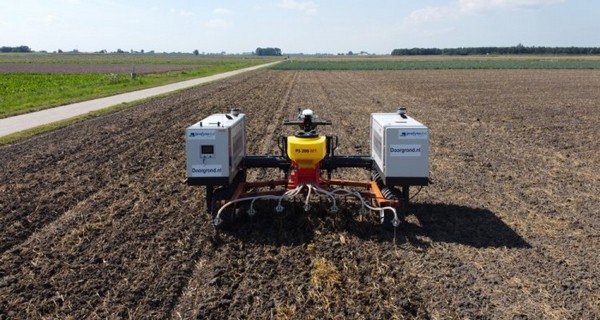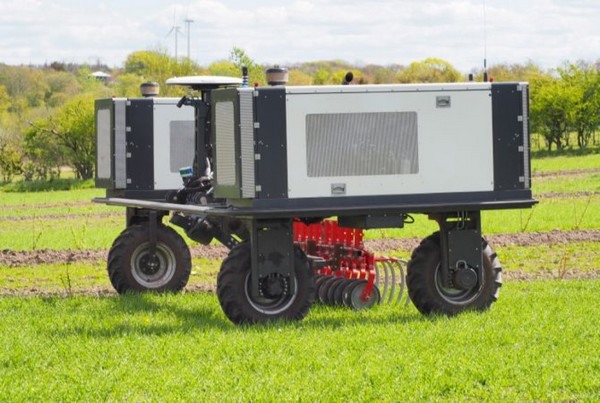From farming controllers and smart implements to fully autonomous farming systems, Robs4Crops (a new project) is helping farmers fill labour shortages — shaking up the farming landscape.
The Robs4Crops project will accelerate the shift towards the large-scale implementation of robotics and automation in European farming. With a €7.9 million budget funded by the European Union, the project represents a high-tech revolution with tremendous potential impact on productivity, efficiency, and environmental sustainability. Robs4Crops will demonstrate that robotics and related technologies bring precision and feasibility to mundane, repetitive tasks, reducing the need for people to engage in work that is unpleasant, unhealthy, and requires zero thought. The project started on 1 January 2021 and will run for four years.
A time for change in changing times
The main challenge in European agriculture is a shortage of labour. While labour costs put pressure on how profitable agriculture can be, the COVID-19 pandemic shows that scarcity of labour is even more significant and can jeopardise the how the food chain functions — from farm to fork. Growers across Europe are reporting a shortage of workers. Fields of fruit and vegetables were not harvested because thousands of seasonal workers were unable to travel to work due to the virus.

From stand-alone units to a complete robotic system
As a result of the coronavirus, there is now heavy investment in robotics and automation in agriculture, which marks the beginning of a structural change in the agrifood sector. At the moment, robotics is still only used sparingly in agriculture on a commercial basis. From a technical point of view, agricultural robots are not yet reaching their potential because they are used as stand-alone units rather than as part of a complete, innovative robotic system. From a non-technical point of view, there is not much of a place for agricultural robots in current farming practices and they are not supported by a network.
Smart implements, autonomous vehicles, and farming controller
Robs4Crops will address technical challenges by creating a robotic farming solution consisting of three elements: smart implements, autonomous vehicles, and the farming controller. Existing agricultural machinery and tractors will be upgraded so that, together with existing agricultural robots, they can function as parts of a robotic system. Development and testing will take place in practice, under real operating conditions, in four countries, and in close collaboration with stakeholders.

Affordable through use of existing agricultural machinery
Robs4Crops will tackle non-technical challenges by using existing machinery, thus reducing the initial investment, and by addressing maintenance, insurance, financing, and training options. Regulations, robo-ethics, and socio-economic impact will also be discussed. Robotics offers an opportunity to develop new business models. Building the ecosystem for agricultural robotics will be an iterative process paralleling technical development. Demonstrations of the complete robotic system (technical and non-technical) will be conducted on the scale that the system will be used for in practice. The trials will be conducted in partnership with commercial farms and business leaders from France, Greece, Spain, and the Netherlands.
Mechanical weed control and spraying against pests and diseases
Robs4Crops aims to address and resolve the organisational and technological challenges that currently stand in the way of the large-scale adoption of agricultural robots. By building on existing farm machinery, standards, and practical pilots, the project will shape and deliver an autonomous system ready for large-scale commercial trials. The new flexible and modular systems will greatly reduce the dependency on hired labour, increase safety, and reduce the overall carbon footprint of food production. The project focuses on the most demanding and repetitive field operations, specifically mechanical weed control and spraying against pests and diseases.

Mainstreaming robotic farming
In a courageous attempt to make robotic farming mainstream, Robs4Crops will provide a safe testing ground for iterative development and innovation through a network of collaborating partners. We put the end-users at the heart of everything we do: from user requirements analysis to the business model experimentation process. The project will increase its impact by collaborating within the growing pan-European ecosystem of Digital Innovation Hubs and EU-funded projects such as SmartAgriHubs and agROBOfood.
Dr Frits van Evert, Senior Scientist at Wageningen University & Research and Robs4Crops Project Coordinator: “Agriculture is very sensitive to the cost and scarcity of labour. And making cultivation practices more efficient and sustainable is critical. Robs4Crops is a game-changer in revitalising the European food and farm industry and the vital ‘catalyst’ in accelerating the adoption of high-tech robotics and automated technologies in agriculture.”
 For more information:
For more information:
Wageningen University & Research
www.wur.nl
